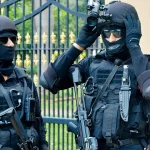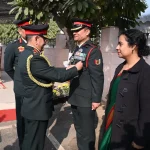The Service Selection Board (SSB) interview stands as a pivotal hurdle for aspirants aiming to join the Indian Armed Forces. The SSB interview, known for its rigorous assessment of candidates, is designed to unveil the character, psychological makeup, and potential of each individual. Among the most critical components of this assessment are personal life questions, which constitute a substantial portion of the interview process. These questions delve deep into a candidate’s personal background, values, motivations, and social behavior, providing the interviewers with insights necessary for discerning leadership potential and suitability for military service.
Understanding the SSB Interview Process
The SSB interview format evaluates candidates through a series of psychological tests, group tasks, and personal interviews, spanning over several days. This process allows the assessors to gauge not just academic prowess but also personality traits that are vital for a career in the Armed Forces. As such, candidates should anticipate a variety of personal inquiries that will require not just factual answers, but also the articulation of thoughts, beliefs, and character.
Personal Background and Family
A deep understanding of one’s roots and familial ties can offer illuminating insights into personality. Questions in this category often include:
- What is your name and what does it mean? This question requires candidates to reflect on their own identity and cultural significance.
- Tell me about your family. Interviewers assess the candidate’s emotional intelligence and their relational dynamics within the family.
- Which family member are you closest to and why? Here, the interviewer seeks to uncover the candidate’s values and support systems.
- How many members are in your family? This simple yet essential question sets the stage for discussing family members in greater depth, opening avenues for conversation regarding siblings, parental influence, and home environments.
Understanding how your family shaped you can greatly enhance your ability to engage with this line of questioning. Prepare to articulate not only the roles but the deeper meaning of your family relationships and how they have prepared you for the challenges ahead.
Education and Extracurricular Activities
Education forms the foundation of a candidate’s professional and personal life. Questions may include:
- Tell us about your academic journey from 10th class onwards. Here, candidates should narrate their academic journey, emphasizing growth and learning experiences, rather than merely listing grades.
- What extracurricular activities do you participate in? Engaging in sports or clubs reveals one’s teamwork and leadership capabilities. Discussing these experiences provides a glimpse into your interests and pursuits beyond academics.
- Who are your best friends and favorite teachers, and why? Sharing stories about these relationships can showcase interpersonal skills, mentorship, and the ability to form strong connections with others.
Friends and Social Life
Friendships illuminate a candidate’s ability to connect with peers. Some questions may include:
- What kind of friends do you prefer?
- How would your friends describe you?
- Tell us about a time you helped a friend.
Engaging in the narratives around friendships can divulge your social nature and collaborative spirit, both vital qualities in Defence forces.
Hobbies and Daily Routine
Understanding personal interests and routines can speak volumes about a candidate’s discipline and lifestyle choices. You might encounter questions like:
- Describe your daily routine. Candidates should highlight a balanced life that reflects discipline, time management, and varied interests.
- What are your hobbies? Discussing hobbies reveals personality traits like creativity and exploration.
- Are you involved in any clubs or social groups? Presence in clubs can indicate passion and leadership capabilities.
Beliefs, Values, and Motivations
Your internal compass is vital to how you navigate life challenges. Common questions include:
- What motivates and demotivates you? Understanding your triggers can show self-awareness, a key trait in leadership.
- What is the most important lesson you have learned in life? This question allows candidates to showcase pivotal moments of growth.
- Do you have any beliefs that guide your behavior? Discussing values provides insight into your character and ethical framework.
Relationship Questions
Personal relationships are integral to emotional intelligence. You might be asked:
- Do you have a girlfriend? If yes, tell us about her. A candidate can express their understanding of relationships and emotional availability here.
- How do your parents view your ambitions? This question reveals the candidate’s alignment with their family’s values.
- Who do you like more, your mother or father, and why? This question can be tricky; it tests your diplomacy and honesty.
Situational and Miscellaneous Questions
Finally, situational questions serve to test emotional intelligence and decision-making abilities. Some examples include:
- What will you do if a lion comes towards you in the jungle? This question assesses quick thinking and survival instincts.
- Have you done any social service? Serving the community can highlight empathy and selflessness.
- What differentiates you from other candidates? This directly challenges you to articulate your unique selling points effectively and confidently.
Conclusion: Preparing for the SSB Interview
A well-prepared candidate is a confident candidate. The intricate nuances of personal life questions during the SSB interview require introspection and honesty. Adeptly handling these inquiries can set you apart from your peers and convey your readiness for a career in the Armed Forces.
Effective preparation involves not just rehearsing answers but also engaging in self-reflection to align personal experiences with the values and roles required by the Defence services. Keep in mind that sincerity and clarity in your responses will resonate more than rehearsed lines.
Final Thoughts: Call to Action
Candidates ready to embark on this journey should invest time in self-reflection and practice. Utilize resources like the SSBCrack and SSBCrackExams platforms, which offer extensive study materials, books, and online courses to guide aspiring officers. As you prepare for your SSB interview, remember that each question is not merely a test but an opportunity to showcase who you are, your ambitions, and your potential as a leader in the Indian Armed Forces.












